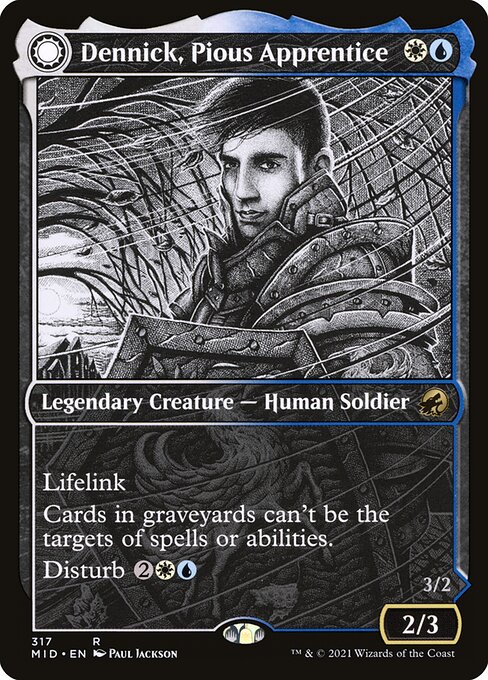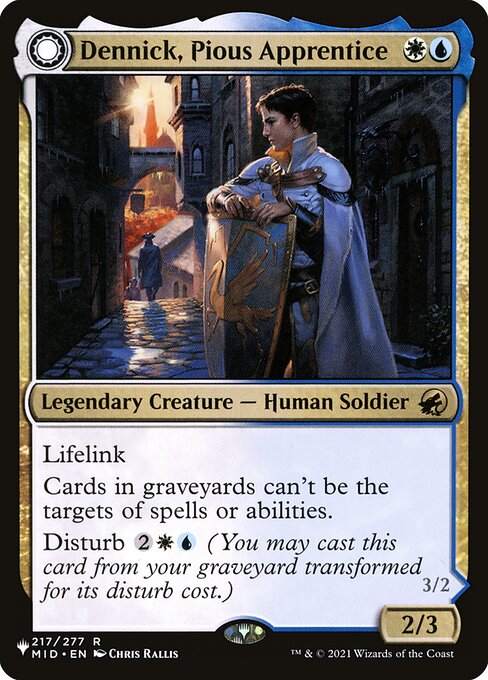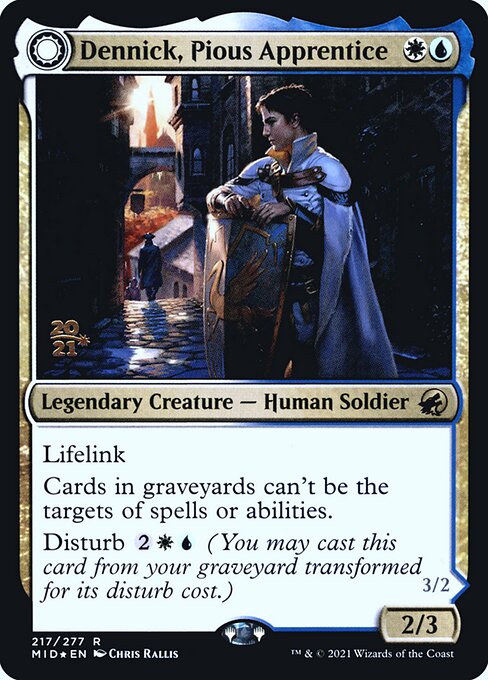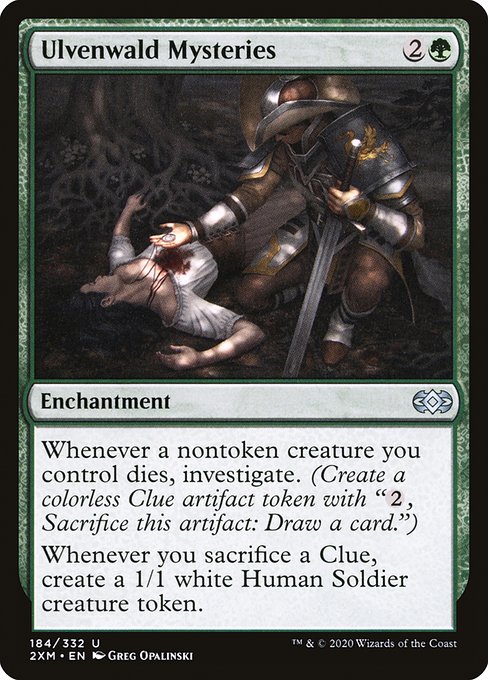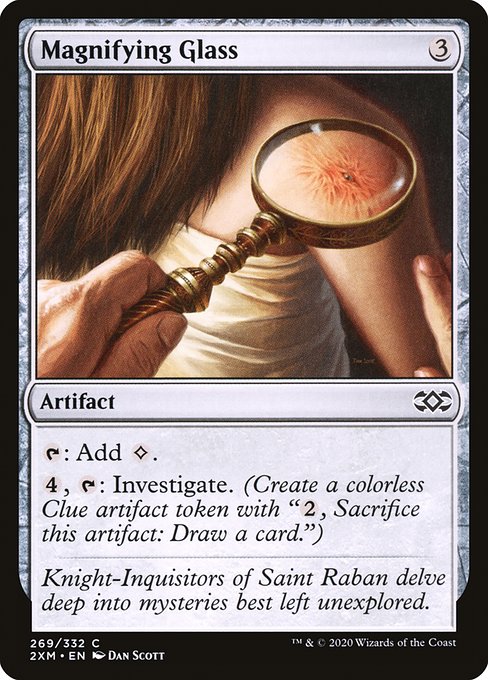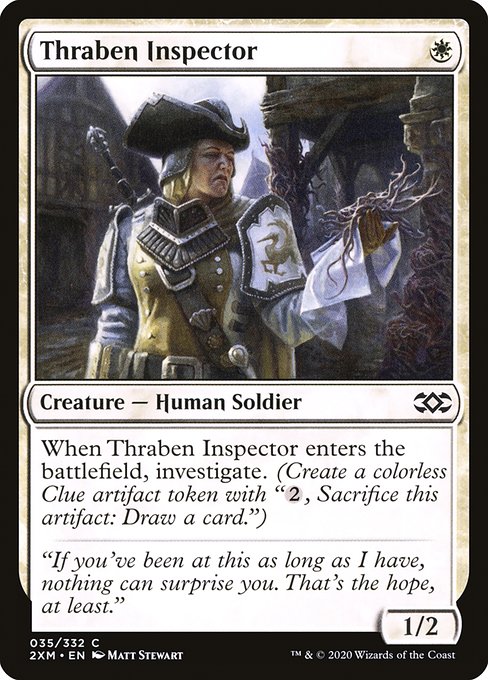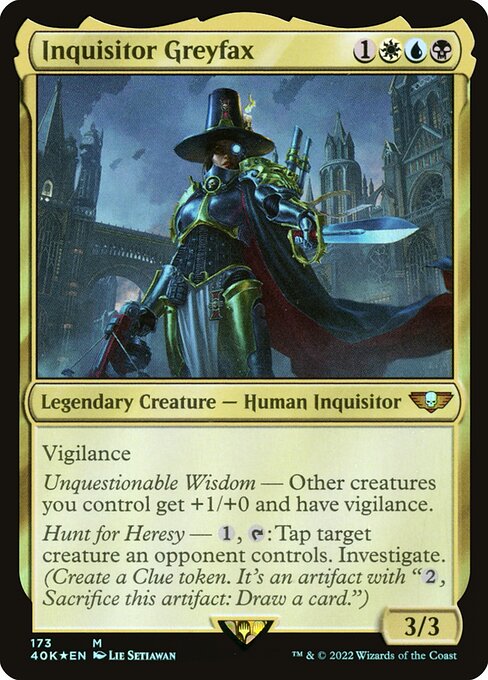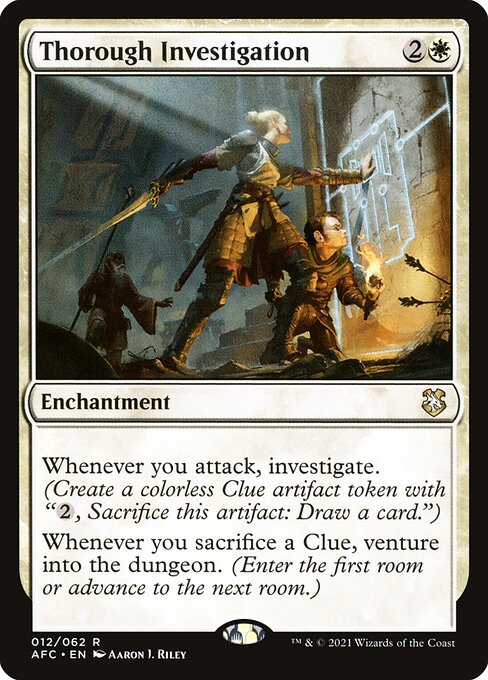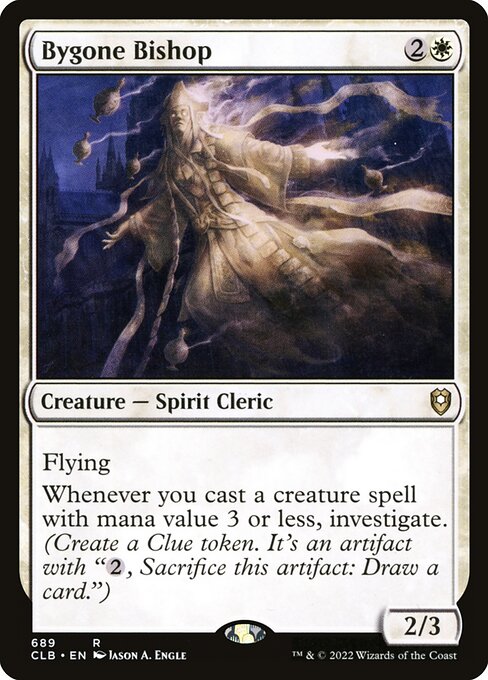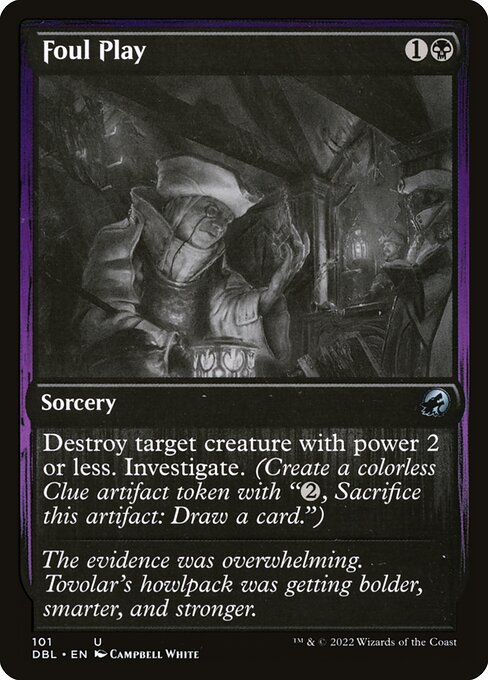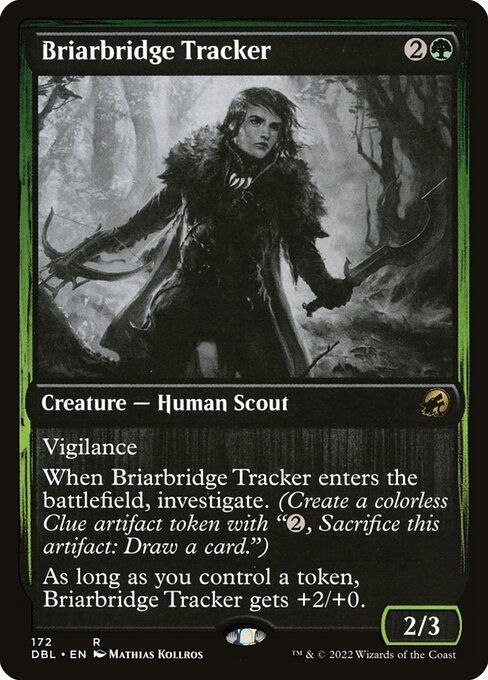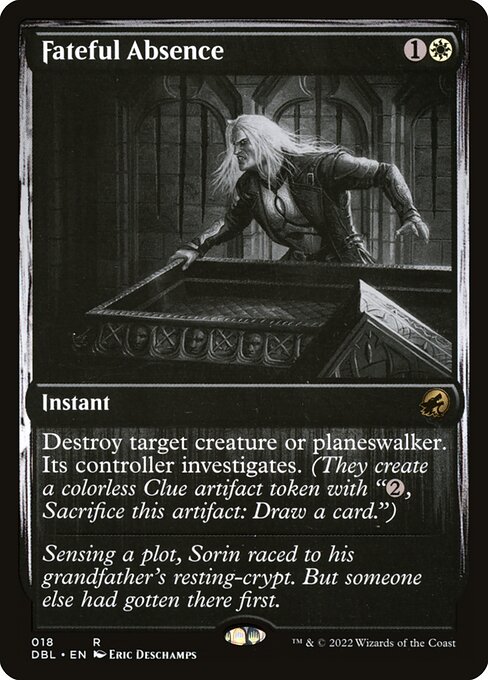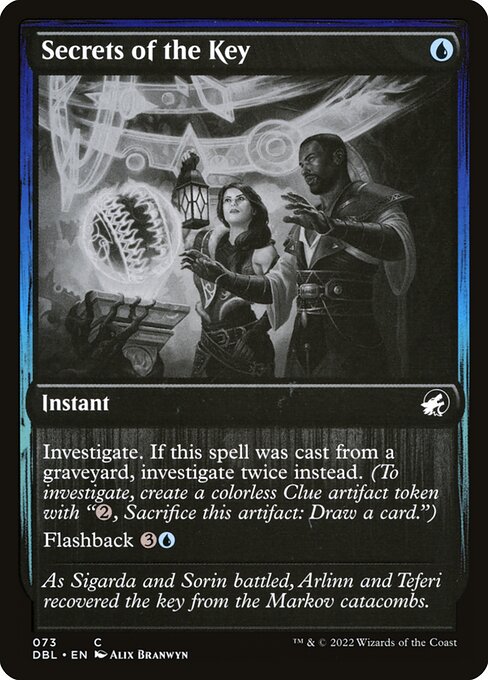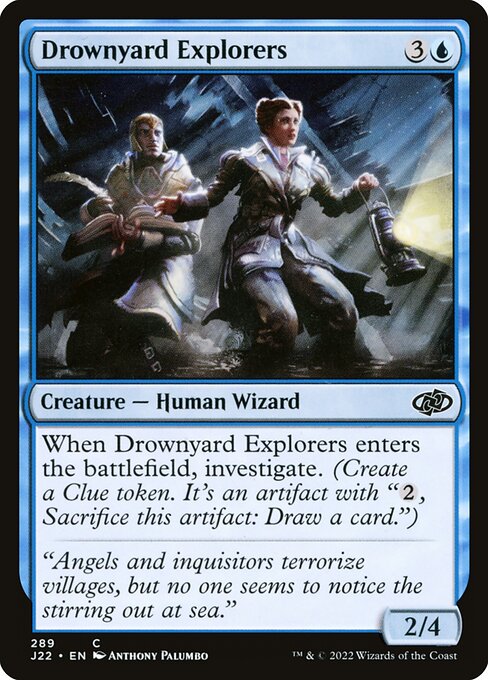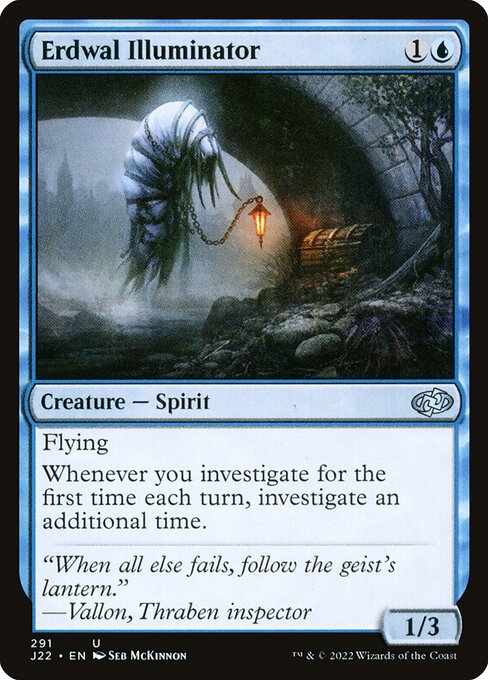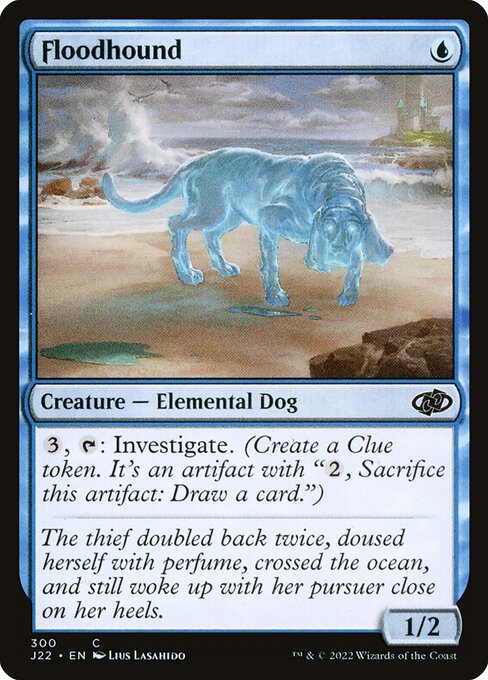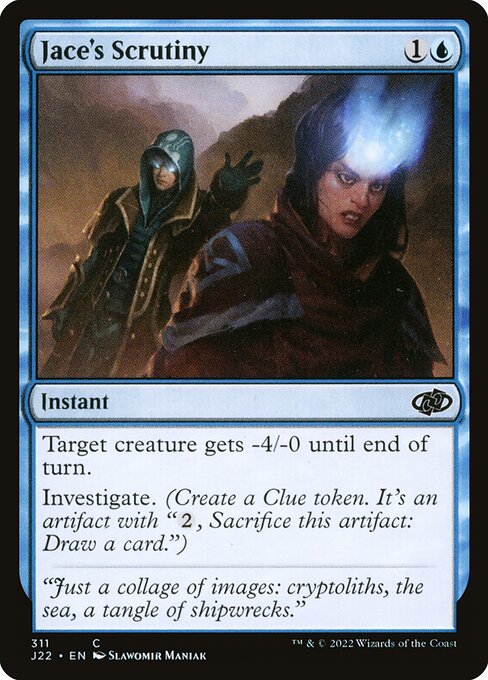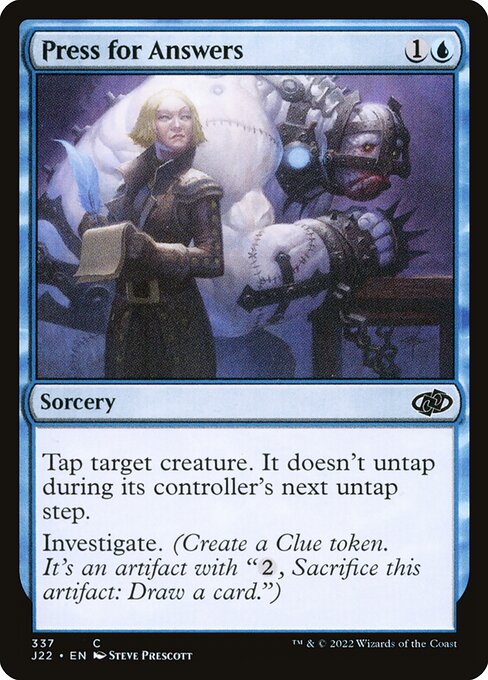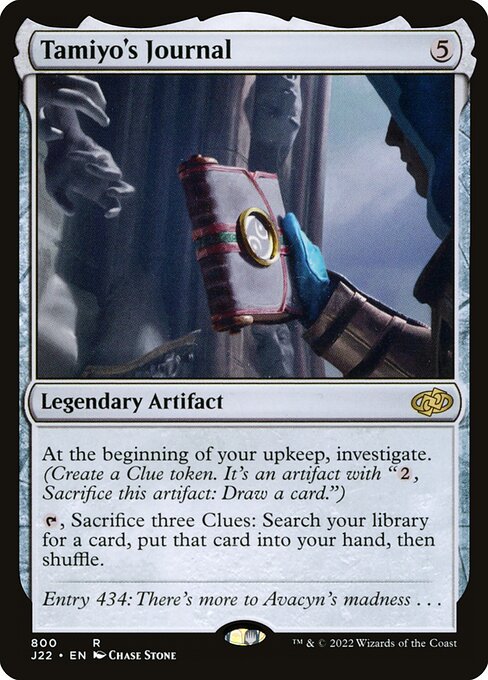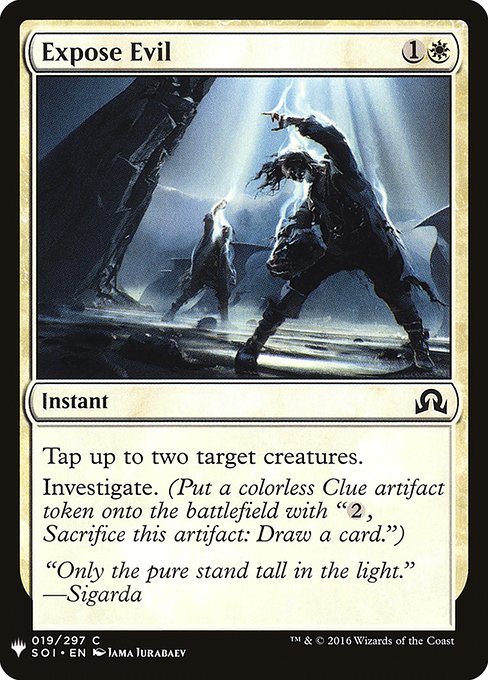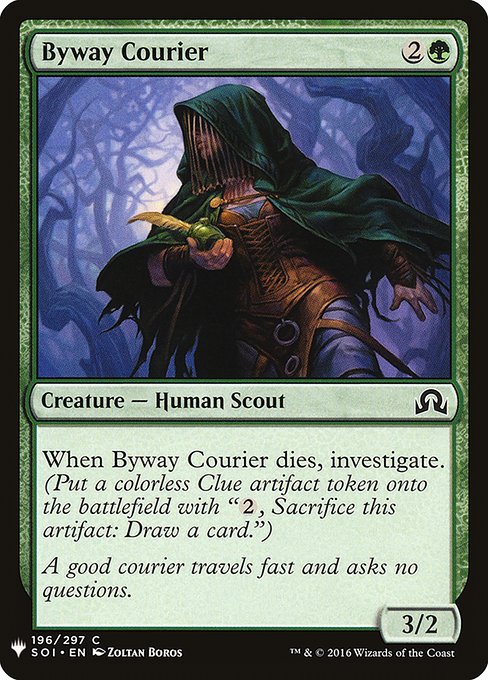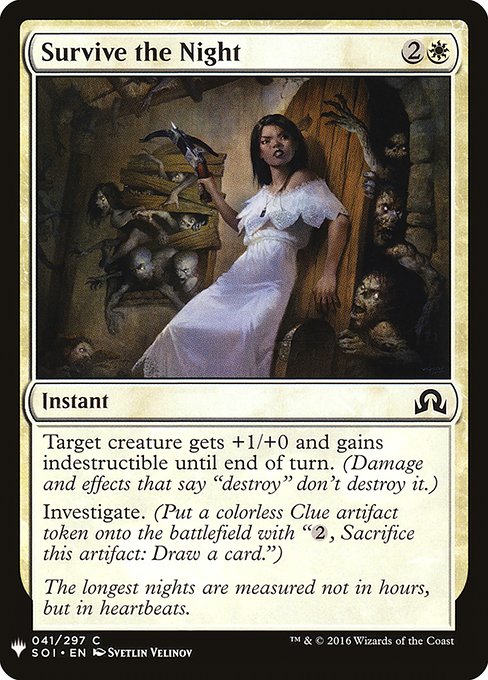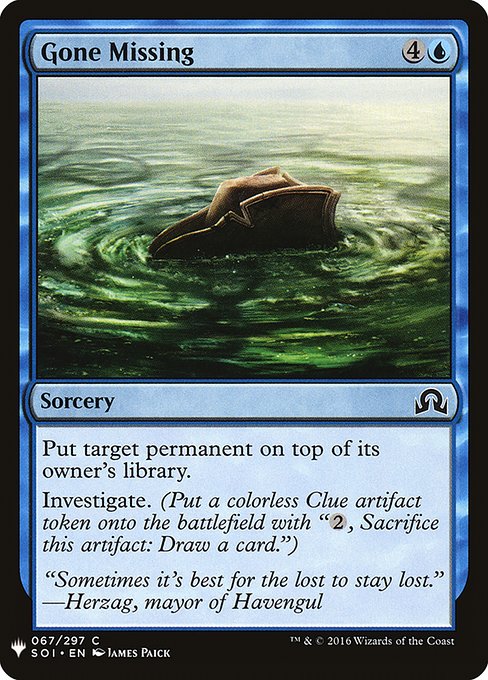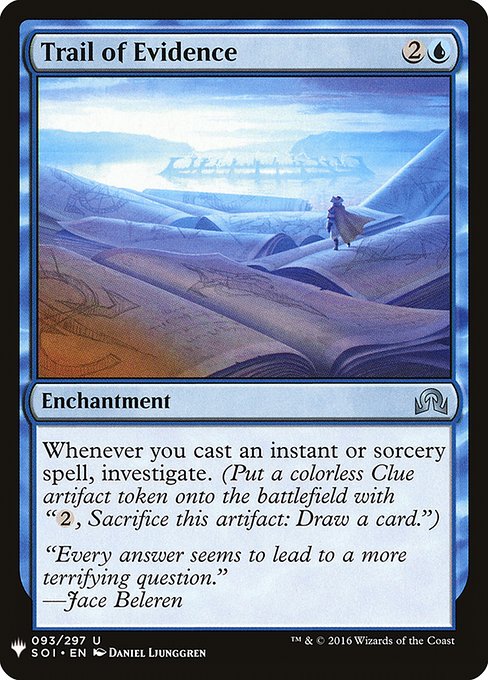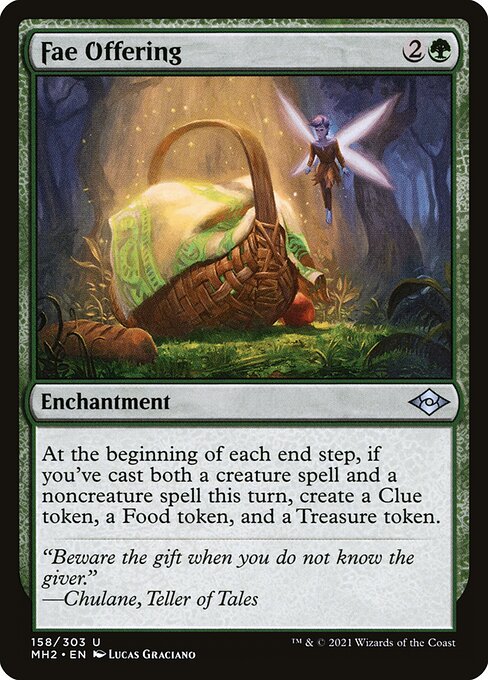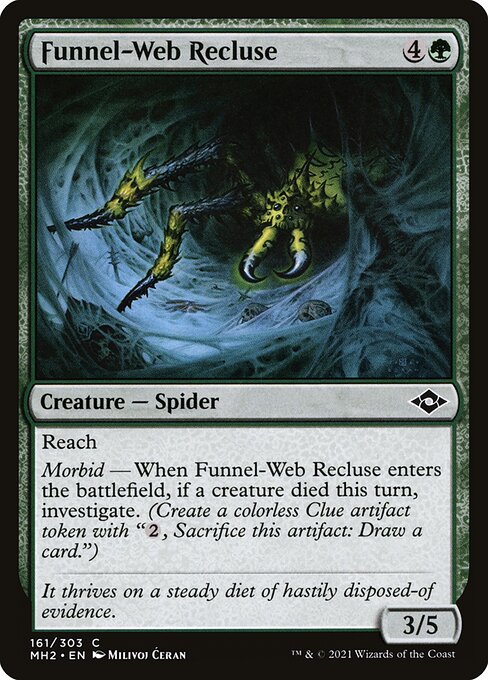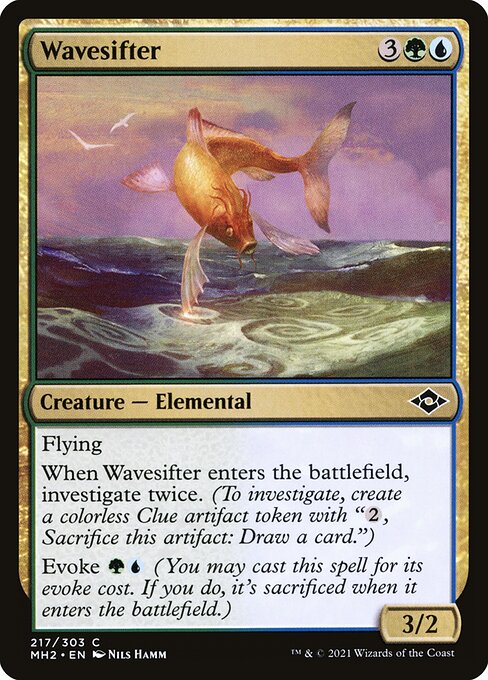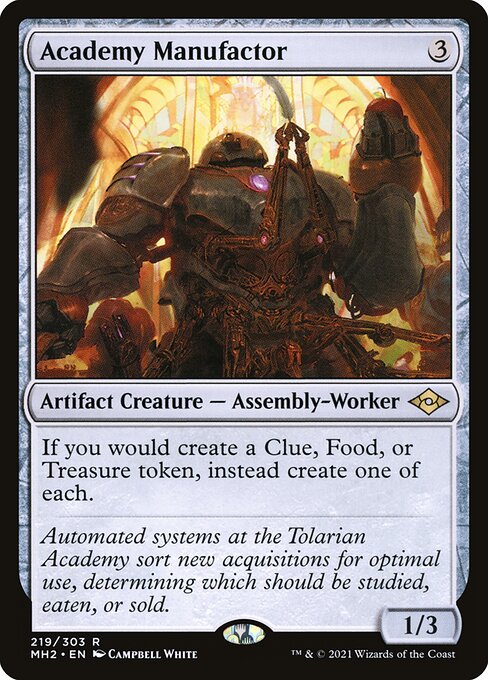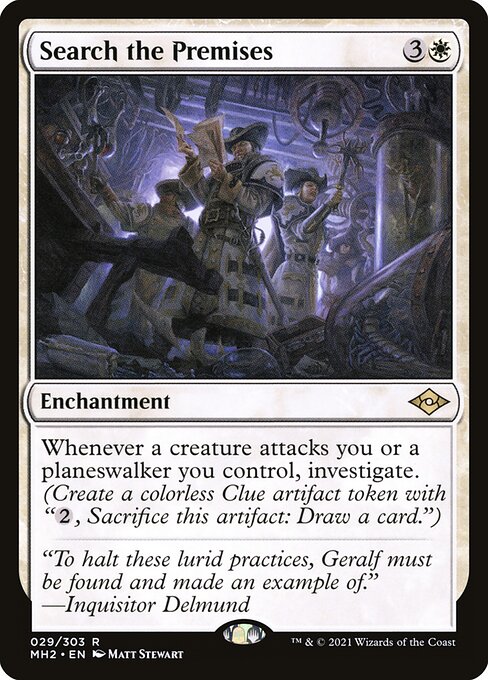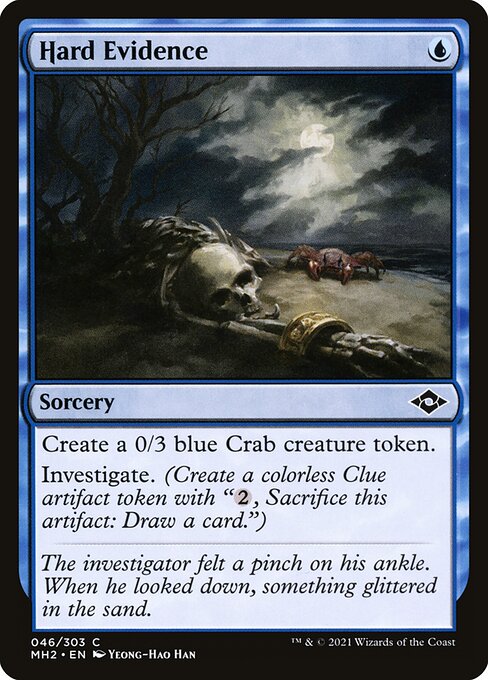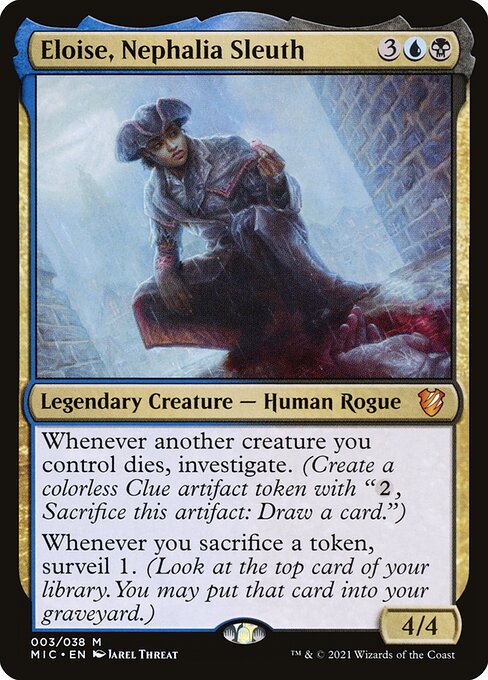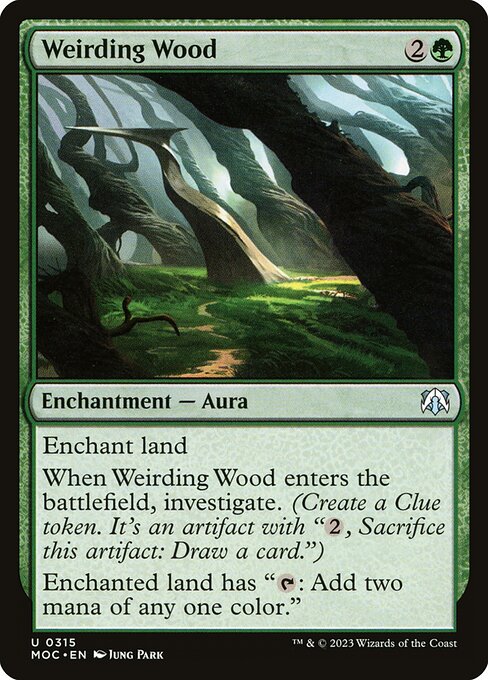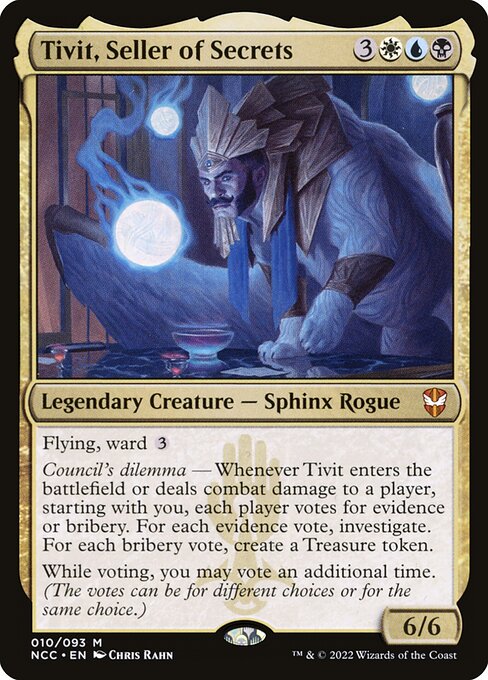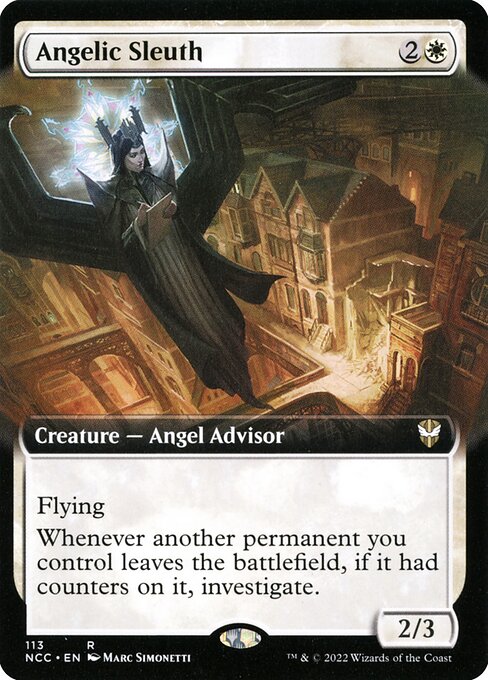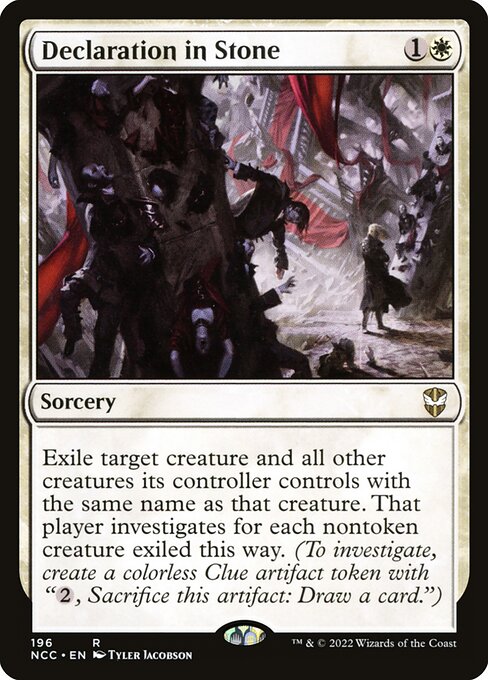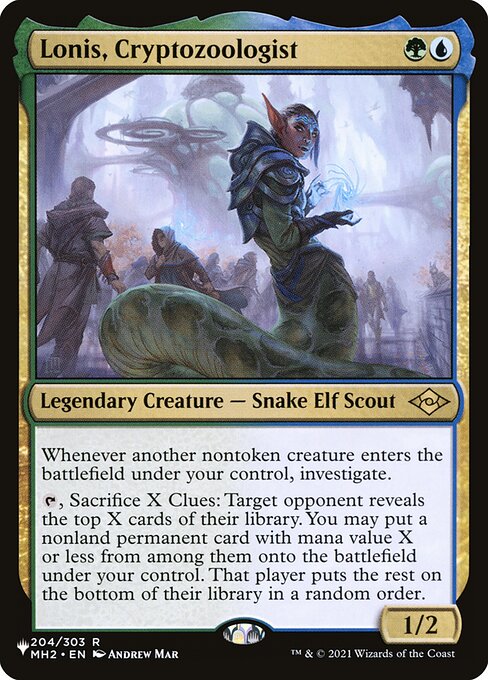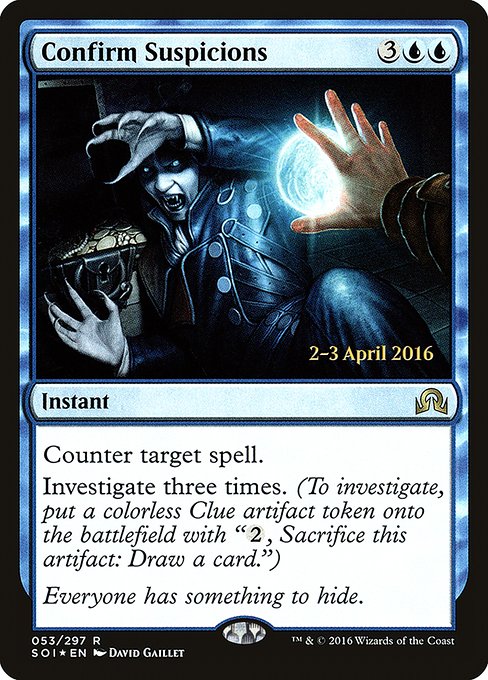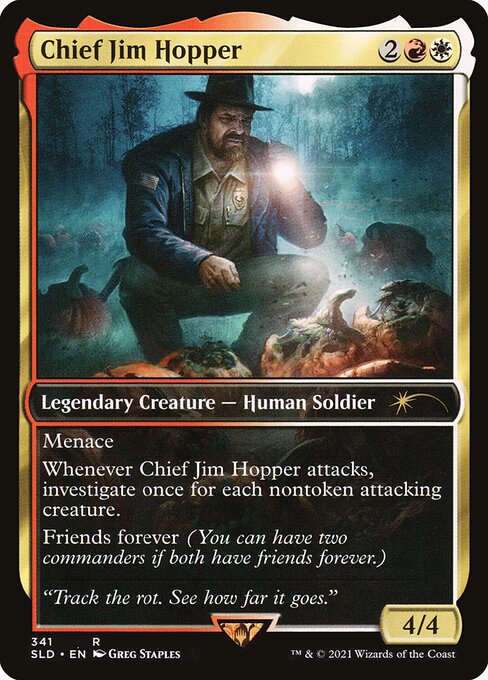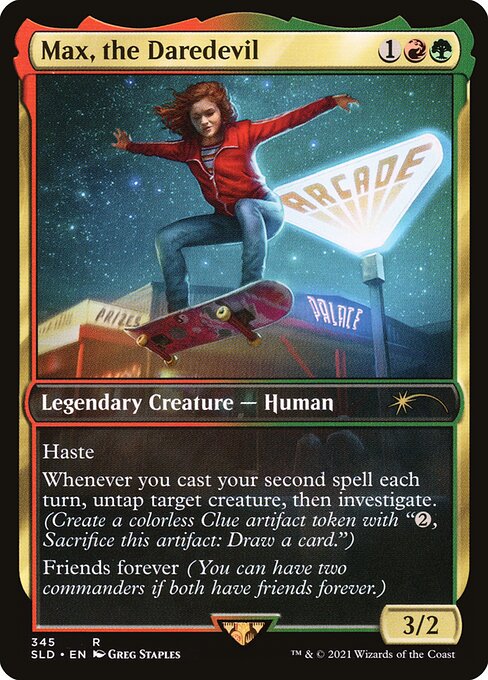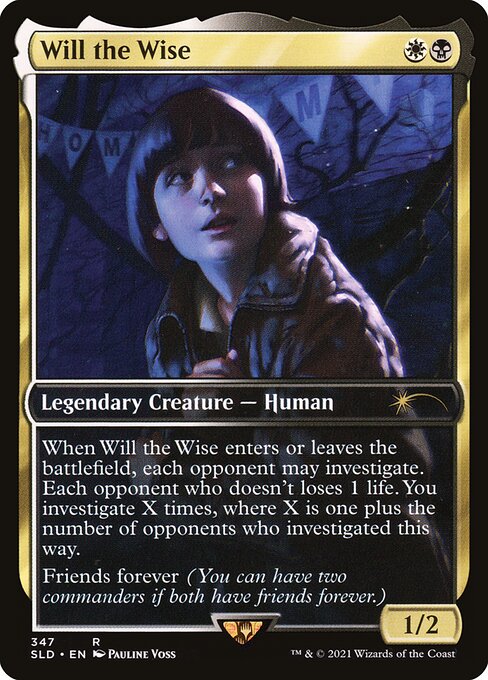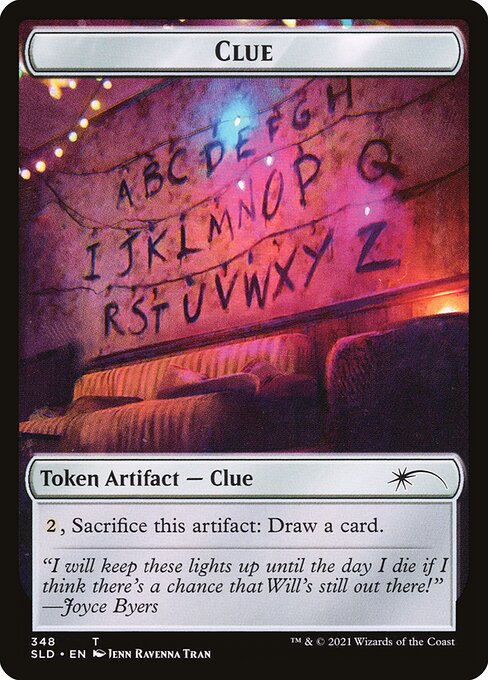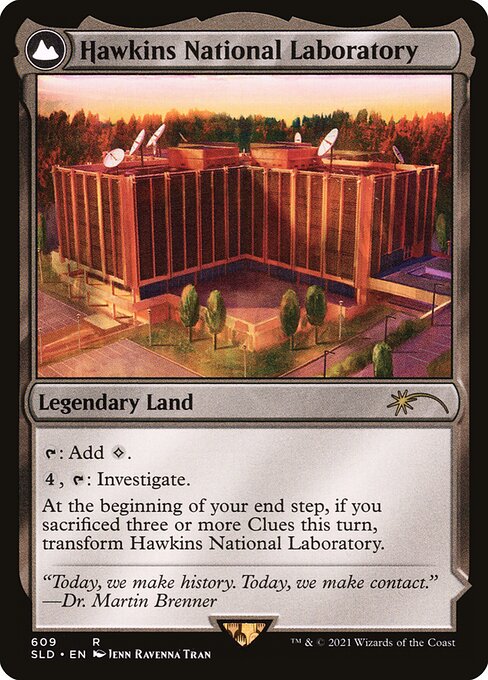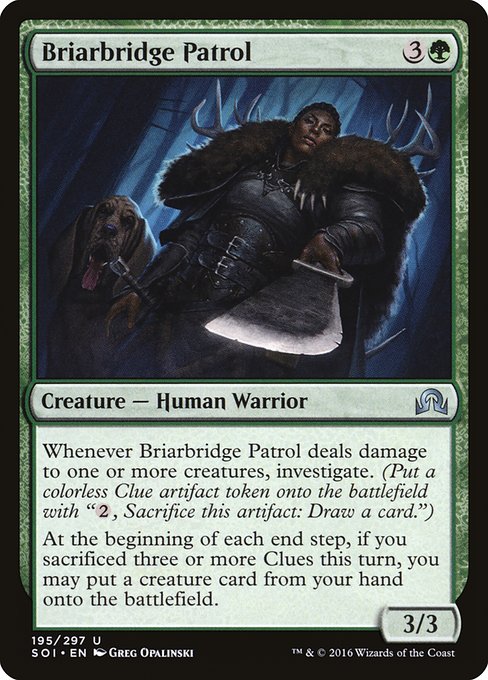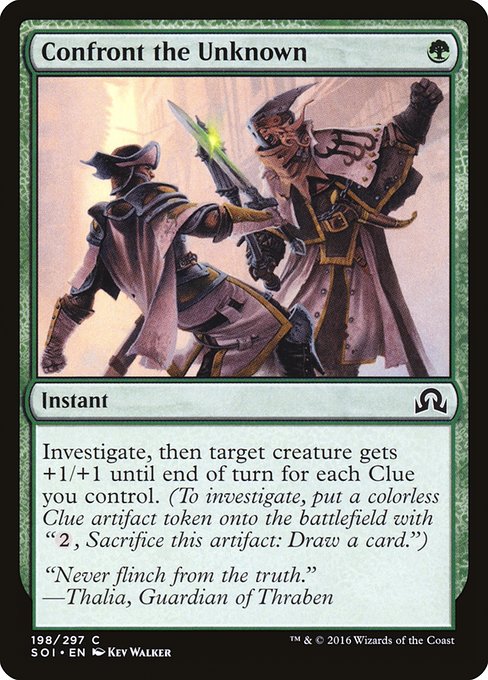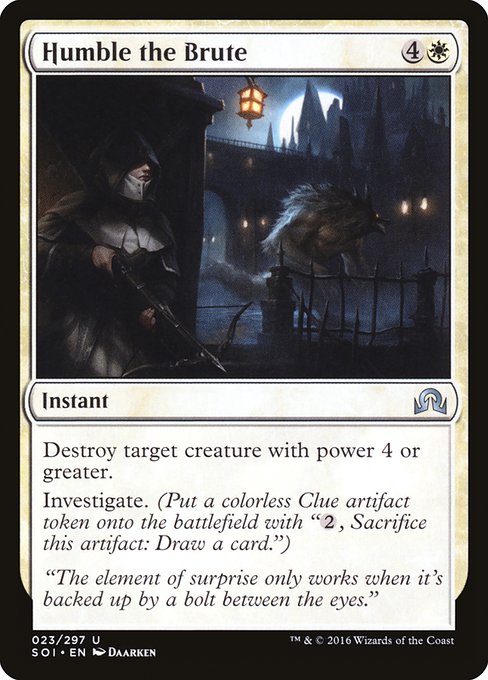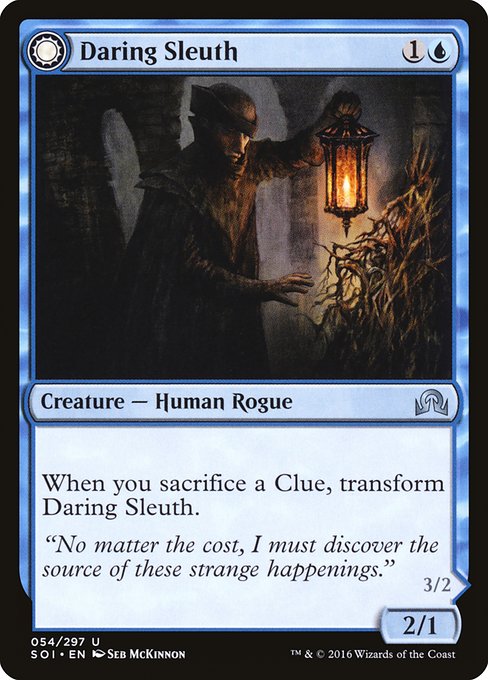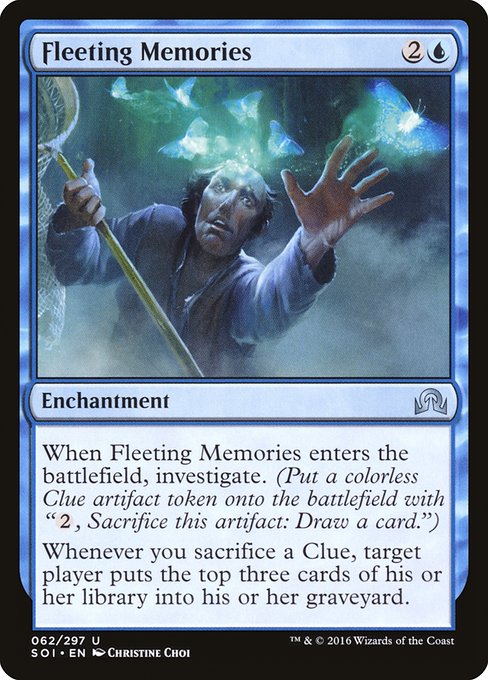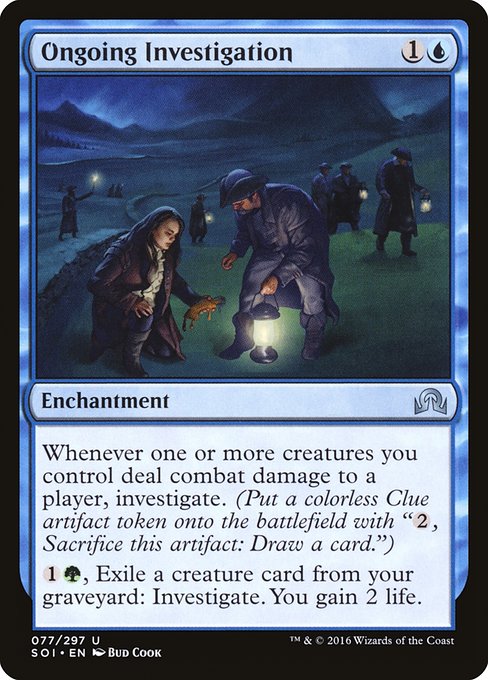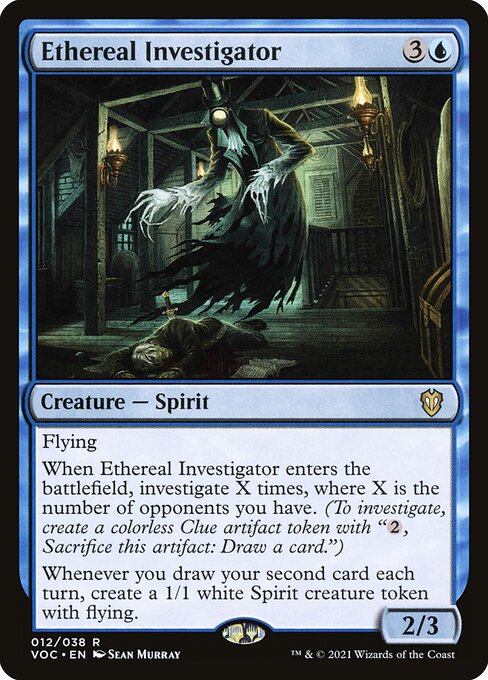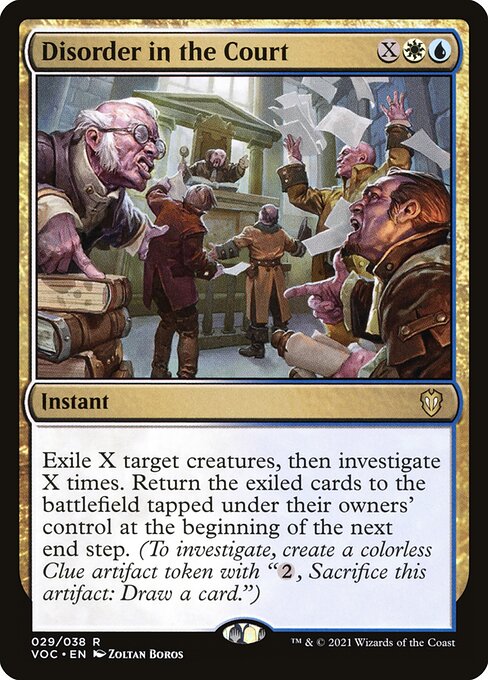Dennick, Pious Apprentice // Dennick, Pious Apparition
//
Legendary Creature — Human Soldier // Legendary Creature — Spirit Soldier
Lifelink
Cards in graveyards can't be the targets of spells or abilities.
Disturb (You may cast this card from your graveyard transformed for its disturb cost.) // Flying
Whenever one or more creature cards are put into graveyards from anywhere, investigate. This ability triggers only once each turn. (Create a Clue token. It's an artifact with ", Sacrifice this artifact: Draw a card.")
If Dennick, Pious Apparition would be put into a graveyard from anywhere, exile it instead.
Cards in graveyards can't be the targets of spells or abilities.
Disturb (You may cast this card from your graveyard transformed for its disturb cost.) // Flying
Whenever one or more creature cards are put into graveyards from anywhere, investigate. This ability triggers only once each turn. (Create a Clue token. It's an artifact with ", Sacrifice this artifact: Draw a card.")
If Dennick, Pious Apparition would be put into a graveyard from anywhere, exile it instead.
2 // 3/3 // 2
standard
future
historic
gladiator
pioneer
explorer
modern
legacy
pauper
vintage
penny
commander
brawl
alchemy
paupercommander
duel
oldschool
premodern
Rulings
The back face of each card with disturb has an ability that instructs its controller to exile if it would be put into a graveyard from anywhere. This includes going to the graveyard from the stack, so if the spell is countered after you cast it using the disturb ability, it will be put into exile.
A token dying will never cause the triggered ability to trigger because a token is not a card.
Disturb is found only on the front faces of some double-faced cards.
“Disturb [cost]” means “You may cast this card transformed from your graveyard by paying [cost] rather than its mana cost.”
To determine the total cost of a spell, start with the mana cost or alternative cost (such as a disturb cost) you're paying, add any cost increases, then apply any cost reductions. The mana value of a spell cast using disturb is determined by the mana cost on the front face of the card, no matter what the total cost to cast the spell was. (This is a special rule that applies only to transforming double faced-cards, including ones with disturb.)
The triggered ability of Dennick, Pious Apparition looks at what type the cards are after they move to the graveyard to determine whether the ability should trigger, regardless of any types they may have had before they were in the graveyard. For example, a creature card that has become a noncreature permanent, perhaps because it was enchanted by Minimus Containment, will cause the ability to trigger when it's put into a graveyard. By contrast, a noncreature card that has become a creature on the battlefield will not cause the ability to trigger when it's put into a graveyard.
The second ability of Dennick, Pious Apprentice affects only spells and abilities that actually target cards in graveyards. Spells and abilities that affect cards in graveyards without targeting them may still affect them, move them to other zones, and so on.
A spell cast this way enters the battlefield with its back face up.
When you cast a spell using a card's disturb ability, the card is put onto the stack with its back face up. The resulting spell has all the characteristics of that face.
If you copy a permanent spell cast this way (perhaps with a card like Double Major), the copy becomes a token that's a copy of the card's back face, even though it isn't itself a double-faced card.
A token dying will never cause the triggered ability to trigger because a token is not a card.
Disturb is found only on the front faces of some double-faced cards.
“Disturb [cost]” means “You may cast this card transformed from your graveyard by paying [cost] rather than its mana cost.”
To determine the total cost of a spell, start with the mana cost or alternative cost (such as a disturb cost) you're paying, add any cost increases, then apply any cost reductions. The mana value of a spell cast using disturb is determined by the mana cost on the front face of the card, no matter what the total cost to cast the spell was. (This is a special rule that applies only to transforming double faced-cards, including ones with disturb.)
The triggered ability of Dennick, Pious Apparition looks at what type the cards are after they move to the graveyard to determine whether the ability should trigger, regardless of any types they may have had before they were in the graveyard. For example, a creature card that has become a noncreature permanent, perhaps because it was enchanted by Minimus Containment, will cause the ability to trigger when it's put into a graveyard. By contrast, a noncreature card that has become a creature on the battlefield will not cause the ability to trigger when it's put into a graveyard.
The second ability of Dennick, Pious Apprentice affects only spells and abilities that actually target cards in graveyards. Spells and abilities that affect cards in graveyards without targeting them may still affect them, move them to other zones, and so on.
A spell cast this way enters the battlefield with its back face up.
When you cast a spell using a card's disturb ability, the card is put onto the stack with its back face up. The resulting spell has all the characteristics of that face.
If you copy a permanent spell cast this way (perhaps with a card like Double Major), the copy becomes a token that's a copy of the card's back face, even though it isn't itself a double-faced card.
Rulings
The back face of each card with disturb has an ability that instructs its controller to exile if it would be put into a graveyard from anywhere. This includes going to the graveyard from the stack, so if the spell is countered after you cast it using the disturb ability, it will be put into exile.
A token dying will never cause the triggered ability to trigger because a token is not a card.
Disturb is found only on the front faces of some double-faced cards.
“Disturb [cost]” means “You may cast this card transformed from your graveyard by paying [cost] rather than its mana cost.”
To determine the total cost of a spell, start with the mana cost or alternative cost (such as a disturb cost) you're paying, add any cost increases, then apply any cost reductions. The mana value of a spell cast using disturb is determined by the mana cost on the front face of the card, no matter what the total cost to cast the spell was. (This is a special rule that applies only to transforming double faced-cards, including ones with disturb.)
The triggered ability of Dennick, Pious Apparition looks at what type the cards are after they move to the graveyard to determine whether the ability should trigger, regardless of any types they may have had before they were in the graveyard. For example, a creature card that has become a noncreature permanent, perhaps because it was enchanted by Minimus Containment, will cause the ability to trigger when it's put into a graveyard. By contrast, a noncreature card that has become a creature on the battlefield will not cause the ability to trigger when it's put into a graveyard.
The second ability of Dennick, Pious Apprentice affects only spells and abilities that actually target cards in graveyards. Spells and abilities that affect cards in graveyards without targeting them may still affect them, move them to other zones, and so on.
A spell cast this way enters the battlefield with its back face up.
When you cast a spell using a card's disturb ability, the card is put onto the stack with its back face up. The resulting spell has all the characteristics of that face.
If you copy a permanent spell cast this way (perhaps with a card like Double Major), the copy becomes a token that's a copy of the card's back face, even though it isn't itself a double-faced card.
A token dying will never cause the triggered ability to trigger because a token is not a card.
Disturb is found only on the front faces of some double-faced cards.
“Disturb [cost]” means “You may cast this card transformed from your graveyard by paying [cost] rather than its mana cost.”
To determine the total cost of a spell, start with the mana cost or alternative cost (such as a disturb cost) you're paying, add any cost increases, then apply any cost reductions. The mana value of a spell cast using disturb is determined by the mana cost on the front face of the card, no matter what the total cost to cast the spell was. (This is a special rule that applies only to transforming double faced-cards, including ones with disturb.)
The triggered ability of Dennick, Pious Apparition looks at what type the cards are after they move to the graveyard to determine whether the ability should trigger, regardless of any types they may have had before they were in the graveyard. For example, a creature card that has become a noncreature permanent, perhaps because it was enchanted by Minimus Containment, will cause the ability to trigger when it's put into a graveyard. By contrast, a noncreature card that has become a creature on the battlefield will not cause the ability to trigger when it's put into a graveyard.
The second ability of Dennick, Pious Apprentice affects only spells and abilities that actually target cards in graveyards. Spells and abilities that affect cards in graveyards without targeting them may still affect them, move them to other zones, and so on.
A spell cast this way enters the battlefield with its back face up.
When you cast a spell using a card's disturb ability, the card is put onto the stack with its back face up. The resulting spell has all the characteristics of that face.
If you copy a permanent spell cast this way (perhaps with a card like Double Major), the copy becomes a token that's a copy of the card's back face, even though it isn't itself a double-faced card.
Votre collection ? vos decks ?
Envie de gérer votre collection et/ou créer des decks ?
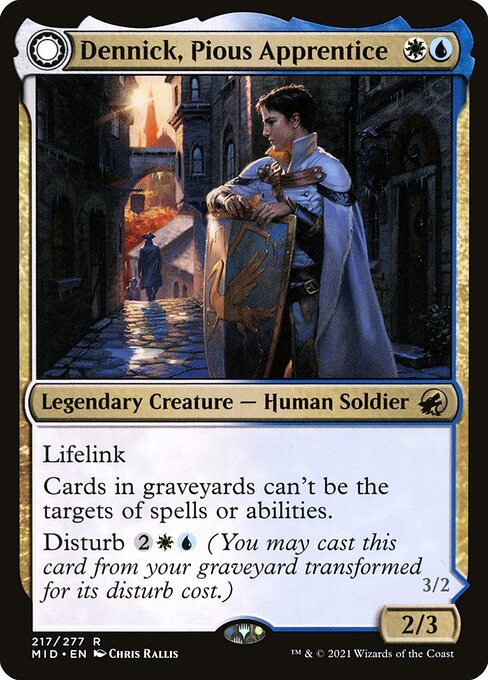

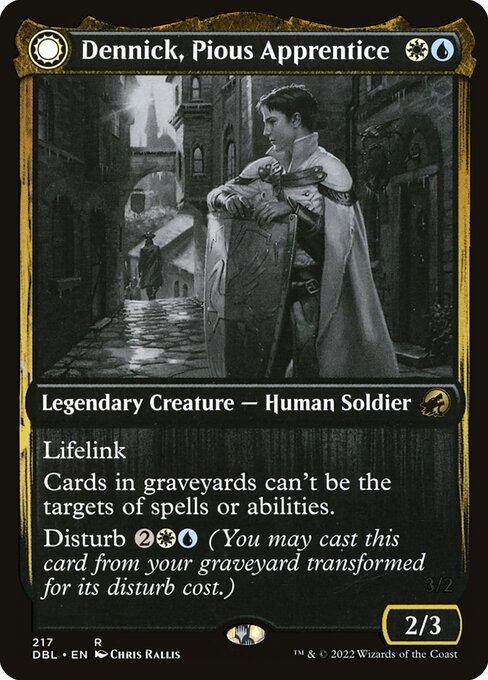
 0
0
 0.52€
0.52€
